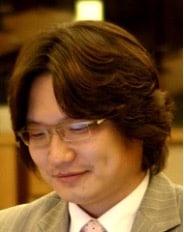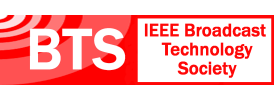- About
- Members
- Sponsors
- Subcommittees
- Technical Documents
- News
- Events
- Spotlight ATSC 3.0
- Contact Us
- Member Login
- Member Meetings
- Advanced Search
Search Site
Member Links
- About
- Members
- Sponsors
- Subcommittees
- Technical Documents
- News
- Events
- Spotlight ATSC 3.0
- Contact Us
- Member Login
- Member Meetings
- Advanced Search
Specialist Group Chair Dr. Youngkwon Lim Honored with SMPTE Sarnoff Medal
Posted on October 10, 2021 in ATSC News

Growing up in South Korea, Youngkwon Lim knew the name David Sarnoff and his “legendary” reputation as the RCA Chairman who pushed the company to develop and introduce the world’s first all-electronic television service. Now, Dr. Lim counts the SMPTE Sarnoff Medal as one of his honors.
The David Sarnoff Medal was established by SMPTE more than 70 years ago and honors the recipient by recognizing outstanding contributions in the development of new techniques or equipment that have contributed to the improvement of the engineering phases of television technology.
“To be recognized as a recipient of the award named after David Sarnoff is the greatest honor of my life and my 25-year professional career,” says Lim, principal research engineer at Samsung Electronics.In the official citation, SMPTE honors Lim “for his significant contributions within ATSC 3.0 development as Chair of TG3-S33: Specialist Group on Management and Protocols and as Chair of MPEG Systems and Specialist Groups. Dr. Lim’s expertise is embedded in next-generation broadcasting technologies such as Interactive Services, Metadata, Streaming and Delivery, Synchronization, Watermarking, Mobile TV (T-DMB), and 3D-TV. Dr. Lim holds multiple patents related to the broadcast industry. He has authored numerous papers on complex subjects to enlighten and educate, while continuing to contribute to groups such as SMPTE, ATSC and IEEE.”
TG-3 Co-Chair Luke Fay notes that Dr. Lim has played an integral role in the advancement of ATSC. “Young has been a part of ATSC 3.0 from the beginning. He proposed MPEG Media Transport to ATSC and helped shepherd that into A/331. He currently chairs S33 as that committee continues to deal with feedback from the field as Services rollout.”
Lim says that “ATSC 3.0 is widely known to be the first broadcasting standard fully based on Internet Protocol and providing seamless integration with broadband networks and facilitating continuous innovation. S33 is where such an important and remarkable decisions have been made. Serving the world’s top-class engineers with a lot of enthusiasm for paving the road to the future of broadcasting is the best part of being the Specialist Group chair,” Dr. Lim says.

“TV was one of the core ingredients of family life when I was young. It was the time for developing digital TV technologies, ATSC 1.0, and the digital transition happened when I was starting a professional career. I was fascinated about transformation of huge bulky analog TV into a sleek flat panel digital TV. I had great personal interest and was ready to be part of such innovation that could change everyone’s life. Later, I was in position leading the development of mobile TVs in Korea, which has been also a great addition to the everyday life of people. I am quite proud of the fact that every Korean has at least one mobile TV receiver and that almost everyone enjoys mobile TV services that can make long commute time more enjoyable,” he explains.
In addition to ATSC, “MPEG is another standards development organization that I’ve been working with for 25 years and I play an important leadership role as the chair of MPEG Systems Working Group. MPEG standards are widely used by ATSC standards. Working with both organizations has great synergy.”
Dr. Lim “enjoys reading books and playing with new technologies and gadgets” when not working on advanced television. He says those hobbies “always inspire me to think about new features to bring to the standards I’m working on.”
Posted in ATSC News
News Categories
News Archives
Subscribe
Subscribe to The Standard, our monthly newsletter. Learn More
Join ATSC
ATSC is a membership organization with both voting and observer categories. Voting members include corporations, nonprofit organizations, and government entities, and they participate actively in the work of ATSC. Observers are individuals or entities not eligible to be a voting member.
Subscribe to our Newsletter
Subscribe to The Standard, our monthly newsletter, to stay up-to-date with ATSC news and events around the world.
Site Links
Contact Us
Advanced Television Systems Committee, Inc.
1300 I Street NW, Suite 400E
Washington, DC 20005
Do you have questions about ATSC?
About ATSC
The Advanced Television Systems Committee, Inc., is an international, non-profit organization developing voluntary standards and recommended practices for digital terrestrial broadcasting. ATSC member organizations represent the broadcast, broadcast equipment, motion picture, consumer electronics, computer, cable, satellite, and semiconductor industries. ATSC also develops digital terrestrial broadcasting implementation strategies and supports educational activities on ATSC standards.
© 2025 ATSC




































